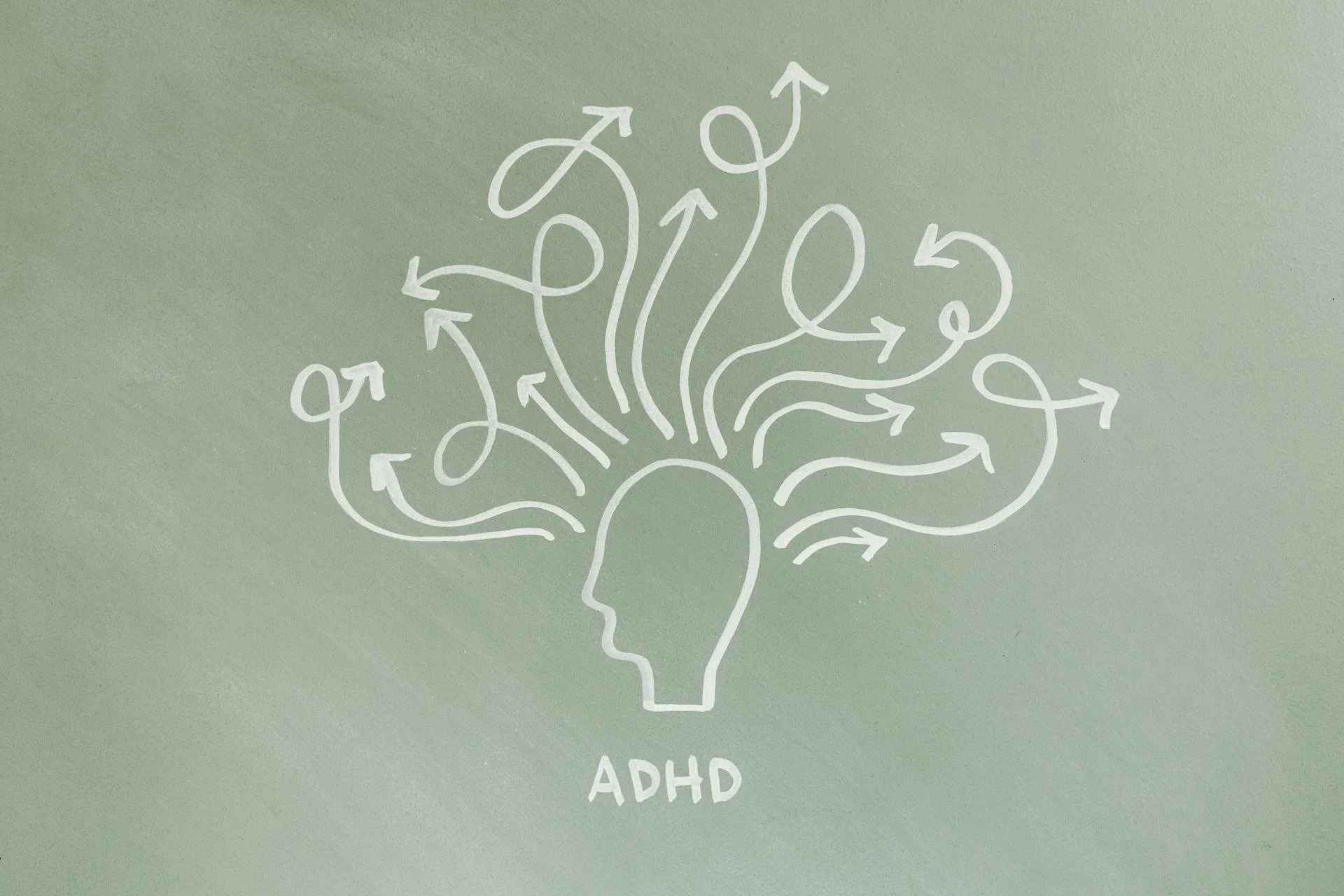Is Medication the Answer for ADHD, or Are Other Options Better?
Attention Deficit Hyperactivity Disorder (ADHD) is a condition that affects numbers of people, often leading to difficulties with focus, impulsivity, and hyperactivity. The first treatment option that comes to mind is medication . But is medication truly the best solution for everyone? Or are there other treatment options worth exploring? Our blog takes a look at ADHD treatments, weighing the pros and cons of medication versus alternative approaches.
Understanding ADHD and Its Challenges
ADHD can manifest in a variety of ways, including difficulty concentrating on tasks, disorganization, forgetfulness, and sometimes impulsivity or hyperactivity. The exact cause of ADHD isn't fully understood, but genetics and environmental factors are believed to play significant roles. Managing these symptoms can be challenging, and finding the right treatment often involves a combination of approaches tailored to the individual's needs.
While medication is a popular choice, it’s important to remember that there are other treatment options available. The key is determining the best course of action based on personal needs, lifestyle, and the severity of the symptoms.
The Role of Medication in ADHD Treatment
Medications for ADHD are typically divided into two categories: stimulants and non-stimulants.
Stimulant Medications
Stimulants are the most commonly prescribed medications for ADHD. They work by increasing the levels of dopamine and norepinephrine in the brain, which helps improve focus, attention, and impulse control.
These medications can be highly effective in reducing the symptoms of ADHD. However, they come with side effects such as insomnia, appetite loss, and increased anxiety. Additionally, they may not work for everyone, and some people might not respond well to them at all.
Non-Stimulant Medications
Non-stimulants are often prescribed when stimulants aren’t effective or cause undesirable side effects.
Non-stimulants tend to have a lower risk of abuse and may be a better fit for those with a history of substance use or who are sensitive to stimulants. However, they may take longer to show results and may not be as immediately effective as stimulants.
The Pros and Cons of Medication
While medication can provide significant benefits in managing ADHD symptoms, it’s not without its drawbacks.
Pros of Medication
Quick Symptom Relief: Medication can have an almost immediate impact on reducing ADHD symptoms, making it easier to focus, stay organized, and control impulses.
Improved Quality of Life: For many individuals, medication can help them perform better at school, work, and in social settings, leading to an overall improvement in their quality of life.
Well-Studied Options: Stimulant medications, in particular, are backed by a wealth of research, demonstrating their effectiveness in treating ADHD symptoms.
Cons of Medication
Side Effects: Side effects like insomnia, headaches, loss of appetite, and irritability are common with stimulants. Non-stimulants have their own side effect profiles, including sedation or fatigue.
Dependence and Abuse Potential: Stimulant medications have a known potential for misuse and abuse, especially in adolescents and young adults.
Not a Cure: Medication can manage symptoms, but it does not cure ADHD. People may still need additional therapies or lifestyle changes to address underlying issues.
Other Treatment Options for ADHD
While medication is a common treatment route, it's essential to consider alternatives, especially for individuals who experience side effects or feel that medication alone isn’t enough. Here are some non-pharmaceutical treatments that may complement or even replace medication for managing ADHD.
1. Behavioral Therapy
Behavioral therapy is one of the most widely used therapies for managing ADHD. It focuses on teaching individuals new ways to manage their behavior, develop organizational skills, and cope with the challenges of ADHD. Cognitive-behavioral therapy (CBT) is a popular approach, helping individuals reframe negative thinking patterns and reduce impulsive behaviors.
2. Lifestyle Changes and ADHD Coaching
Making certain lifestyle changes can have a significant impact on managing ADHD symptoms. For example:
Establishing routines: Regular schedules can help improve focus and reduce forgetfulness.
Exercise: Physical activity has been shown to boost dopamine levels in the brain and improve focus.
Mindfulness and meditation: Techniques like mindfulness can help manage impulsivity and anxiety.
Hiring an ADHD coach can also be beneficial. ADHD coaches specialize in helping individuals set goals, develop strategies, and stay on track.
3. Dietary Adjustments
Some people find that certain foods and supplements can help manage ADHD symptoms. Omega-3 fatty acids, found in fish and some supplements, have been shown to have positive effects on focus and cognitive function. A balanced diet, rich in vitamins and minerals, can also play a role in reducing ADHD symptoms.
Medication Management Services and Hiring a Healthcare Professional
For those who opt for medication, it’s crucial to ensure proper medication management. This is where medication management services can play an essential role. These services help individuals monitor their response to medications, adjust dosages as necessary, and track potential side effects. A healthcare professional specializing in medication management can also ensure that ADHD medications are taken correctly and that they don’t interact with other medications.
In some cases, consulting with a healthcare professional who specializes in ADHD treatment can be beneficial. They can help determine the right medication and dosage, monitor progress, and suggest alternative treatments or lifestyle changes that can enhance overall well-being.
Conclusion
ADHD is a complex condition, and there is no one-size-fits-all treatment. While medication can be highly effective for many individuals, it is not the only solution. Behavioral therapy, lifestyle changes, and alternative treatments can play crucial roles in managing ADHD symptoms. For those choosing medication, seeking medication management services and working with a healthcare professional can ensure that the treatment plan is tailored to their needs. The best approach to managing ADHD is one that combines multiple strategies, ensuring a holistic and effective treatment plan for the individual.





